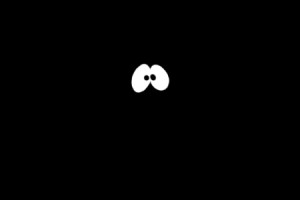Its not a matter of if, but when…

Power outages don’t have to be inconvenient. You don’t have to lose all the food in your refrigerator or freezer. You don’t have to miss your favorite TV shows. And you don’t have to burn candles – if you don’t want to. There are alternatives.
In our latest video, home inspectors from
The Real Estate Inspection Company explore different options for providing power in the event of a power outage. The first part of our video discusses the pros and cons of portable generators and stand-by generators.
Portable Generators
Portable generators are small enough to move around. Some are not much bigger than a toaster oven. But to power several large appliances, pool pump, a well, lights, or even your air conditioner, you’ll need a bigger generator. The larger portables are typically mounted on wheels. With portable generators you will still need to physically run extension cords from whatever you want to power to the generator. Here are some pros and cons of portable generators.
Portable Generator Pros
- Affordable. Portable generators range from $400 – $1,500 or more depending on capacity.
- Portable. Small units can be carried. Larger units typically have wheels.
- Easy to use. Just start, and plug something in.
Portable Generators Cons
- Limited power. Small units can only power a few items.
- Require gasoline. You need to store gas which can go bad after 6 months.
- Manual operation. You have to be home to use it.
- Requires extension cords. You’ll need to move your refrigerator and forget about running your AC.
Click here if you don’t see the video
Stand-by Generators
A more permanent and automated solution is to install a “stand-by generator”. These generators are permanently installed and automatically provide power in the event of a black out. Stand-by generators automatically detect the loss of power and turn on. Since they are permanently wired to the electrical system of your house, they can provide electricity to every item in your house – even your air conditioner or pool pump.
While some people think that an extended power outage is unlikely, all you have to do is look at the recent events in San Diego. In some cases the power was out for nearly a week. During the Cedar fire in 2003 the electricity was not restored for weeks in some cases. New procedures for SDG&E will allow them to turn power off if there is another fire or if Santa Ana winds become too strong. If you have a stand-by generator, you won’t have to worry about losing food, having your pool turn green, or simply being comfortable in your own home.
Another great benefit of a stand-by generator is that they are fueled by natural gas or propane. They are permanently plumbed to your gas supply. This means that you don’t have to store gasoline, and the generator can run for days or longer without refueling. While these systems are more expensive, it can be worth the cost in convenience. And if you run a business from your home, or have medical equipment that requires electricity, these generators can be a life saver.
Stand-by Generator Pros
- Automatic. You don’t even have to be home. It will start automatically.
- Capacity. Can provide enough electricity to power the entire house.
- No extension cords. You don’t have to move your refrigerator. It works as it normally does.
- Unlimited fuel. You don’t have to store gasoline. It is fueled by your natural gas or propane supply.
Stand-by Generators Cons
- Not portable. These units are large and cannot be moved.
- Installation. You need a licensed electrician to install these and they require permits.
- Cost. The convenience comes at a higher price. It may cost $5,000 – $15,000 or more depending on the capacity and cost of electrician.
Article written by Philippe Heller, President of The Real Estate Inspection Co. located in San Diego California. For more information, please visit sdinspect.com
Philippe Heller started The Real Estate Inspection Company in 2004 after a really poor home inspection on his own house. He applied his background in technology to build an innovative, industry-leading company. Working for SDG&E, GE Power Systems, Cox Communications and Time Warner Communications taught him a lot about technology, quality, and customer service. These traits are passed on to all of the employees in the company.
 Power outages don’t have to be inconvenient. You don’t have to lose all the food in your refrigerator or freezer. You don’t have to miss your favorite TV shows. And you don’t have to burn candles – if you don’t want to. There are alternatives.
In our latest video, home inspectors from The Real Estate Inspection Company explore different options for providing power in the event of a power outage. The first part of our video discusses the pros and cons of portable generators and stand-by generators.
Power outages don’t have to be inconvenient. You don’t have to lose all the food in your refrigerator or freezer. You don’t have to miss your favorite TV shows. And you don’t have to burn candles – if you don’t want to. There are alternatives.
In our latest video, home inspectors from The Real Estate Inspection Company explore different options for providing power in the event of a power outage. The first part of our video discusses the pros and cons of portable generators and stand-by generators.



